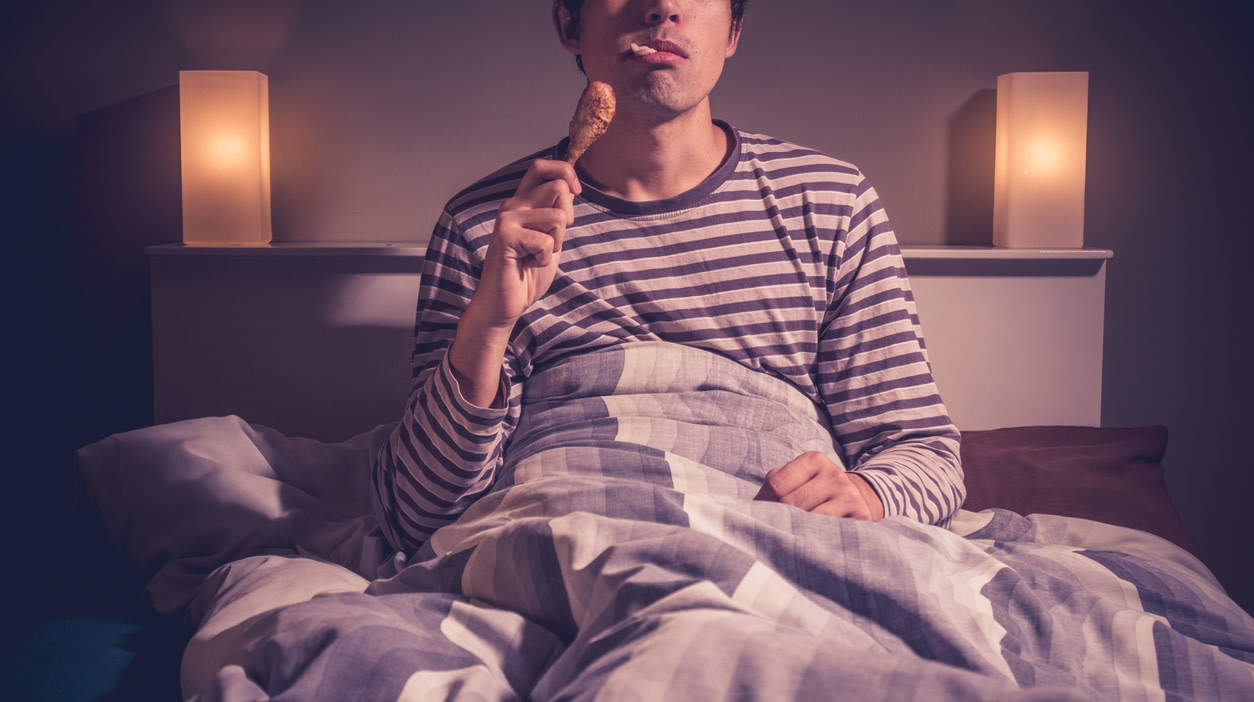Can't Stop Eating Junk Food? Try Sleeping More
I, a longtime food industry professional, have an absolutely atrocious diet. I'm also a chronic insomniac who hasn't had decent sleeping patterns since I was 12 years old. Now, a new study from Northwestern Medicine has found a link between sleeplessness and the desire for high-fat foods, and suddenly my entire life makes so much sense. I'm not eating peanut butter out of the jar at midnight because I lack self control—it's my body's fault! I'm off the hook!
My poor choices stem from the human olifactory system—a.k.a. our sense of smell. When the body is sleep deprived, the system goes into hyperdrive, sharpening odors so that the brain can better differentiate what's food and what's not. But a sleep-deprived brain has trouble communicating with itself, as messages get scrambled between its areas.
"When you're sleep deprived, these brain areas may not be getting enough information, and you're overcompensating by choosing food with a richer energy signal," said senior author Thorsten Kahnt, assistant professor of neurology at Northwestern University Feinberg School of Medicine, in an official press release. "But it may also be that these other areas fail to keep tabs on the sharpened signals in the olfactory cortex. That could also lead to choosing doughnuts and potato chips."
Getting more sleep will lead to better food choices, but for those of us who find it difficult, Kahnt suggests we pay closer attention to the foods we're craving, with the understanding that we're not thinking straight.
"Our findings suggest that sleep deprivation makes our brain more susceptible to enticing food smells, so maybe it might be worth taking a detour to avoid your local doughnut shop next time you catch a 6 a.m. flight."
